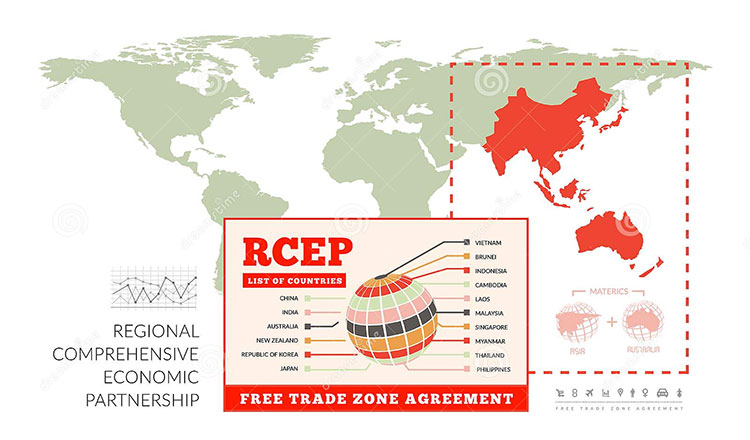This is the second article on the Regional Comprehensive Economic Partnership Agreement (RCEP), part of a series of articles covering its economic, trade and investment impacts on Cambodia published in Khmer Times. This article covers the interesting topic of e-commerce international regulations. It is interesting to note that since the dot-com boom of the 1990s, lax domestic and global regulation has allowed technology companies to enjoy unfettered freedom to exploit e-commerce and digital services. The exponential rise of digital services led to an increasing concentration of power in the hands of a few major platforms. Unfortunately, digital transformation in developing countries lags dramatically behind, and Cambodia is no exception. They remain largely excluded from technological breakthroughs such as artificial intelligence, the Internet of Things (IoT), advanced robotics, big data analytics, and cloud computing.
When Cambodia takes on its ASEAN chairmanship in January of next year and the RCEP enters into force, e-commerce will be governed by a new set of rules. This article will attempt to highlight its most important features, which will become a solid building block for advancing further e-commerce trade liberalisation in the Asia-Pacific.
Chapter 12 of the RCEP calls for a framework for future liberalisation in e-commerce. It introduces specific rules on e-commerce that will modernise the trading relationship among the Member States. It covers various topics that are usually standard e-commerce provisions similarly found in other ASEAN Plus One FTAs. To help facilitate cross-border trade, RCEP contains a soft ‘endeavour’ obligation to promote the use of, and accept, paperless trading. A legal signature cannot be rejected, for lack of legal validity, solely because it is in electronic form. RCEP requires Cambodia to have consumer protection laws for e-commerce consumers against fraudulent and misleading commercial activities and outlines how remedies may be pursued and how businesses may comply with these regulations. Such legal framework must ensure the protection of online personal information of e-commerce users while measures to tackle the issue of unsolicited commercial electronic messages (UCE) or ‘spam’ messages, i.e. direct marketing, promotional emails sent to consumer without their prior request, are also envisaged in the agreement. The ability to regulate UCE messages will provide consumers with options to enable opt-outs and other consent-based requirements, as well as measures to enable recourse against non-complying suppliers.
Full article: https://www.khmertimeskh.com/50995447/what-cambodia-can-expect-from-rcep-e-commerce/



